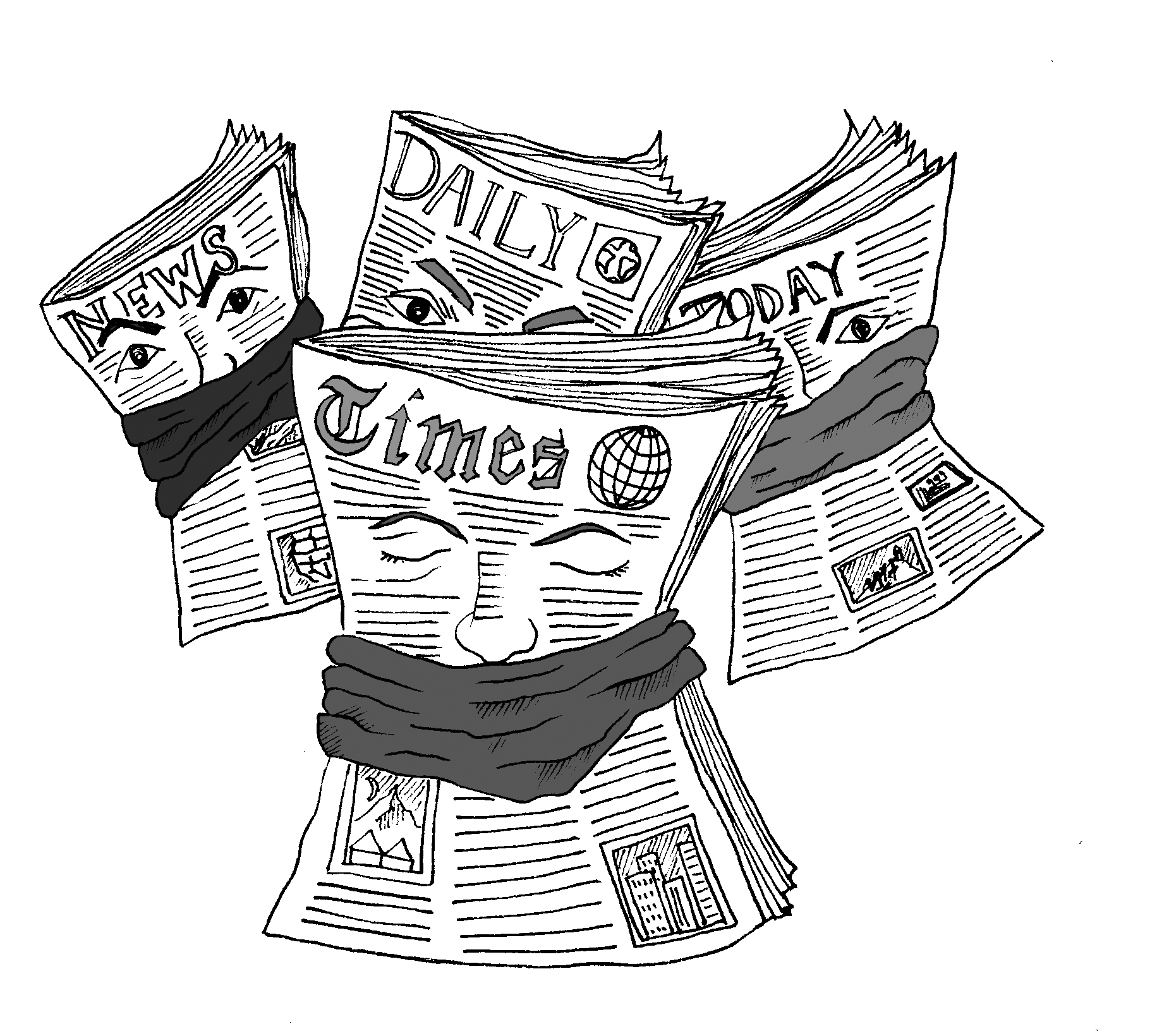Assange’s fate is the fate of journalism
February 28, 2020
 This
piece represents the opinion of the author
.
This
piece represents the opinion of the author
.
 Holly Harris
Holly HarrisAs you read this, Julian Assange is facing a court case that could change the practice of journalism, full stop. He’s charged with “conspiracy to commit computer intrusion for agreeing to break a password to a classified U.S. government computer” during Chelsea Manning’s 2010 leak of government documents exposing U.S. war crimes.
Assange has served as the public face of WikiLeaks for years. WikiLeaks exists to “safely reveal important information about the world, and to protect their sources in doing so.” They are perhaps best known for decrypting and releasing footage taken from a helicopter in 2007 during the Iraq War in a video now known as “Collateral Murder.” The video shows American soldiers misidentifying a group of civilians as terrorists, gunning them down from the helicopter and laughing about it.
This is obviously something that everyone, especially American citizens, have a right to access, to see what our government is doing with our money and in our name.
This charge breaks down to Assange asking Manning, a source, for more material—in other words, a perfectly normal journalistic practice. That should raise red flags by itself.
The second thing to know is that the extradition order that happened under President Donald Trump is premised on no more information than former President Barack Obama and Eric Holder, his attorney general, had back in 2011. In other words, the fact that Assange tried (and failed) to guess a computer password has been known for years. In the end, the Obama administration refused to go forward with the charge, realizing—rightly so—that it would endanger journalism and set a dangerous legal precedent. The Department of Justice (DOJ) under Trump has no such qualms; in ordering the extradition and trial of Assange in this country, the DOJ is prosecuting a journalist for doing journalism.
In a just world, this wouldn’t happen: a journalist doing journalism wouldn’t be in prison awaiting extradition and facing charges of espionage. In a just world, that would only happen to someone who deserved it. If you feel a roiling in your gut, I can explain: there’s an interesting glitch in human psychology called (perhaps unoriginally) the “just world fallacy,” and it’s an important one to be aware of. It explains the victim-shaming and blaming in cases of mugging, rape, robbery, murder because we have an unconscious need to imagine a world where good things happen to good people, and bad things happen to bad people. This particular facet of psychology was demonstrated in the ’60s, and it boils down to the human tendency to select for cognitive ease over cognitive discomfort.
Ultimately, Assange’s trial comes down to this question: should journalists be punished for exposing war crimes? That Assange would be facing life imprisonment for the material he has published, simply because it was inconvenient for the governments that perpetrated the crimes revealed, clashes with this pleasant fiction of a just world, which may lead you to want to forget this story and move on. But I submit to you that this is infinitely bigger than Assange’s case. Regardless of the case’s outcome, the isolation and psychological damage that Assange has already suffered and continues to suffer for holding the American government to account is broadcasting a lesson: never do anything remotely like what that guy did, or the same thing will happen to you.
And it works. I know because it works on me. If you came to me and said you had information that incriminated some of the most powerful people in the world, I’d tell you to keep it the hell away from me. I have neither the strength nor the courage to face the consequences of taking that information and running with it—I just have too much to lose. Even reading this piece can be hard, because it tints the world in an uglier light than how we grew up imagining it. But if our generation knows anything, it’s how to deal with rude awakenings before our time and lead the way regardless. The public outcry needed to shame those who would hide Assange away for the rest of his life and make of him an example—that falls on our shoulders.
It’s my hope that in reading this, you’ll want to learn more about Assange’s plight. For that, I can think of no better names than Caitlin Johnstone, Max Blumenthal, Michael Brooks and Aaron Maté—just google them.
Ethan McLear is a member of the Class of 2023.
Comments
Before submitting a comment, please review our comment policy. Some key points from the policy:
- No hate speech, profanity, disrespectful or threatening comments.
- No personal attacks on reporters.
- Comments must be under 200 words.
- You are strongly encouraged to use a real name or identifier ("Class of '92").
- Any comments made with an email address that does not belong to you will get removed.

Thanks for writing this, Ethan. I agree that we should be bringing attention to those who shine a light on unduly, unjust, and unkempt behavior from persons and governments.
Information is power.
Vox has a really nice video about whistleblowers that I think is also really relevant: https://www.youtube.com/watch?v=xuiDuoRJkOY
Which Julian Assange are we speaking of? Your version of the journalistic White Knight whose group exposed alleged war crimes? Or is it the Assange who threw his accomplice Chelsea Manning under the bus, the Assange who gleefully abetted Trump with his disclosure of Hillary Clinton’s emails, or the Assange who hid out in the Ecuadorian embassy? What a piece of work he is.